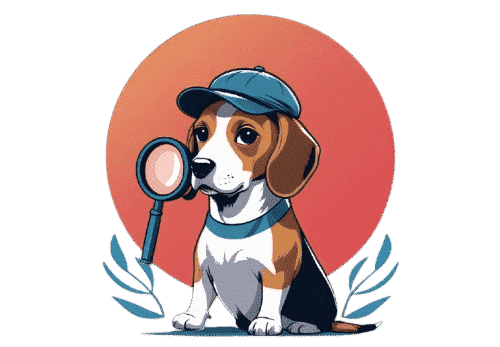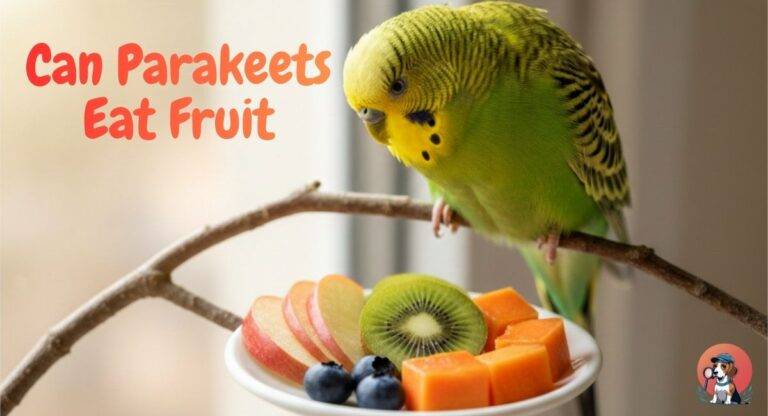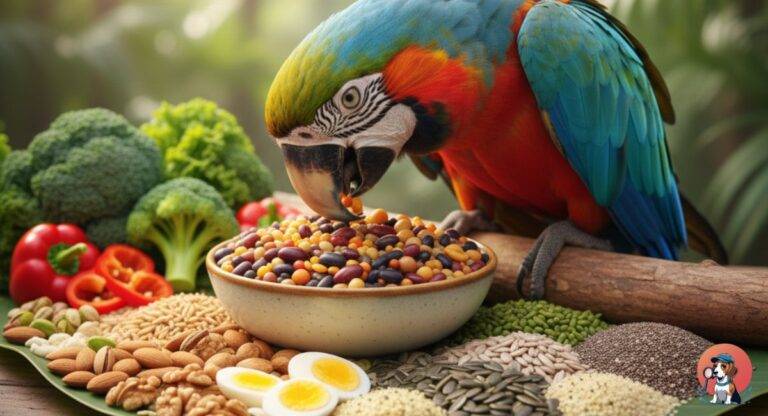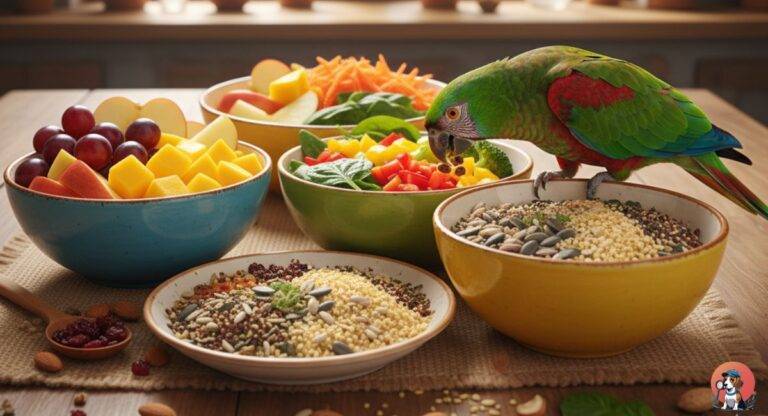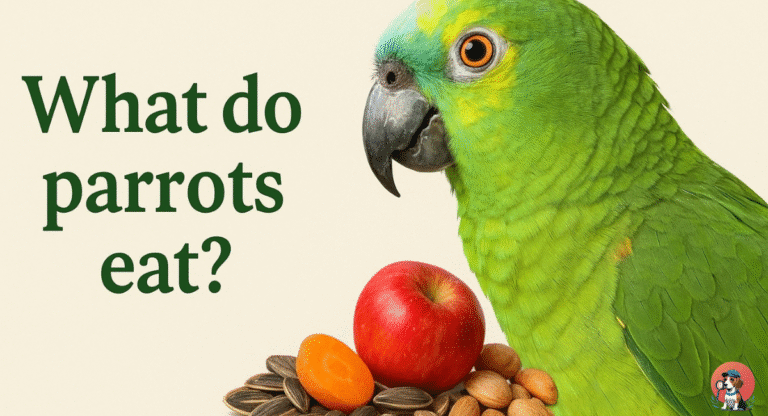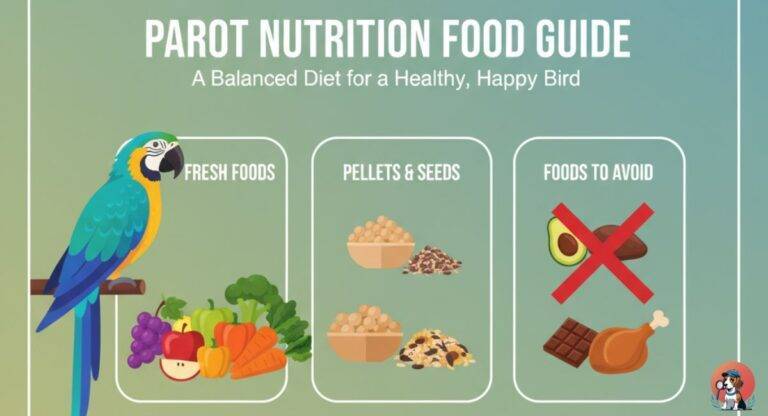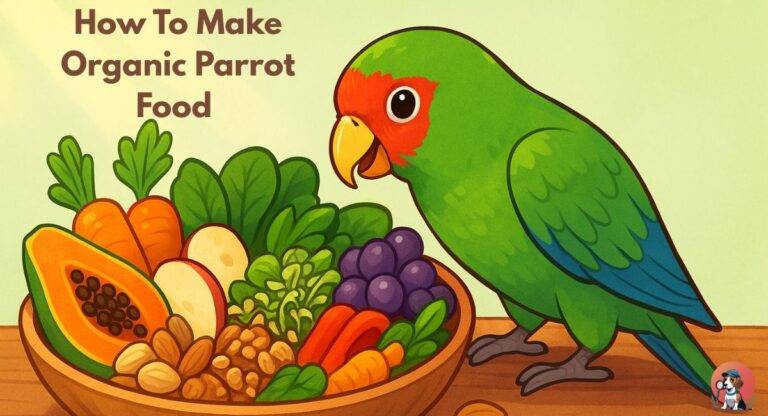Parrots are naturally omnivorous, and while it’s tempting to feed them snacks, certain things that seem harmless are actually Toxic Foods For Parrots; these should not be part of their general diet, yet many owners assume they are safe, which can be pretty risky, so being mindful of what we offer them ensures they stay healthy, happy, and thriving without accidental exposure.
Parrots, much like dogs or a cockatoo, will often nibble on whatever seems interesting. Still, a small bit of chocolate from a bar can quickly make them ill, this is Toxic Foods For Parrots and the result can be bad if we don’t pay attention; yes, it’s tempting to let her or any bird sample snacks, but we must always know that certain foods for them will become dangerous, so careful supervision ensures they stay safe while exploring safely.
Foods On Your Avian Vets Do Not Feed List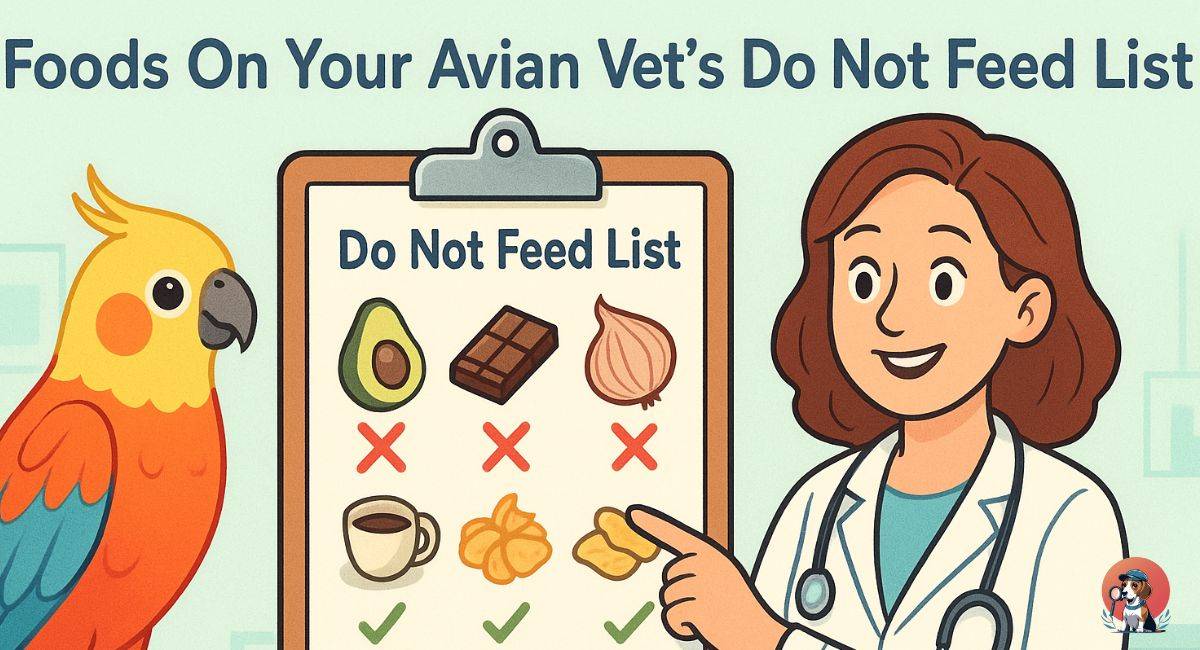
- Chocolate: Toxic Foods For Parrots should avoid chocolate, especially darker, bitter types, as theobromine, caffeine, and methylxanthines can, even in small doses, cause hyperactivity, increased heart rate, tremors, seizures, and sometimes death; these toxic substances are classified as dangerous for pets and potentially lethal if ingested, making it an important rule to never offer them.
- Avocado: When considering Toxic Foods For Parrots, avocado from the plant contains persin, a fungicidal toxin that can harm the cardiac system in birds, and even small amounts can affect canaries, budgies, and other susceptible species, with clinical signs like respiratory distress observed after ingestion, sometimes leading to death within hours or days, as reported.
- Onion & Garlic: Toxic Foods For Parrots, birds like conures and geese, it has become evident that onion and garlic in concentrated forms such as garlic powder or onion soup mix carry significant toxicity, much like in dogs and cats, and even small amounts can be potent, while large quantities fed over time may become fatal; this vegetable-derived hazard has been widely recognized and described, making careful avoidance critical to ensure the safety of your feathered companions.
- Comfrey: How even popular human herbs and leaves can unintentionally cause severe liver damage in birds like canary species, and studies suggest that some seemingly harmless green foods used in medicine or by breeders carry hidden toxins, making it essential to understand that what’s safe for humans is not always safe for our feathered friends.
- Fruit Pits & Apple Seeds: It’s crucial to remove the seeds, pits, or diced parts of apples, cherries, plums, apricots, and peaches before feeding because they contain cyanide, and allowing a bird to chew them can be dangerous, so always allow only the safe flesh to ensure your feathered friend stays healthy.
- High-Fat, High-Sodium, High-Sugar Foods: Caring for birds, offering foods like pasta with sauce, noodle dishes, or butter-laden meals that are high in fat, salt, or sugar can quickly lead to serious health problems, and understanding concentrations of these toxic ingredients on the table helps prevent accidental harm while still letting our feathered friends enjoy occasional treats if we carefully add safe alternatives.
- Sugar-Free Candy: Sugar-free candy or sweets that people often consider a better alternative because they contain xylitol can be associated with severe liver damage and hypoglycemia in birds, similar to dogs, so it’s always safest to offer them only regular bird-safe treats rather than experimenting with human sugar substitutes.
Not Recommended, But Are Sometimes Fed Without Incident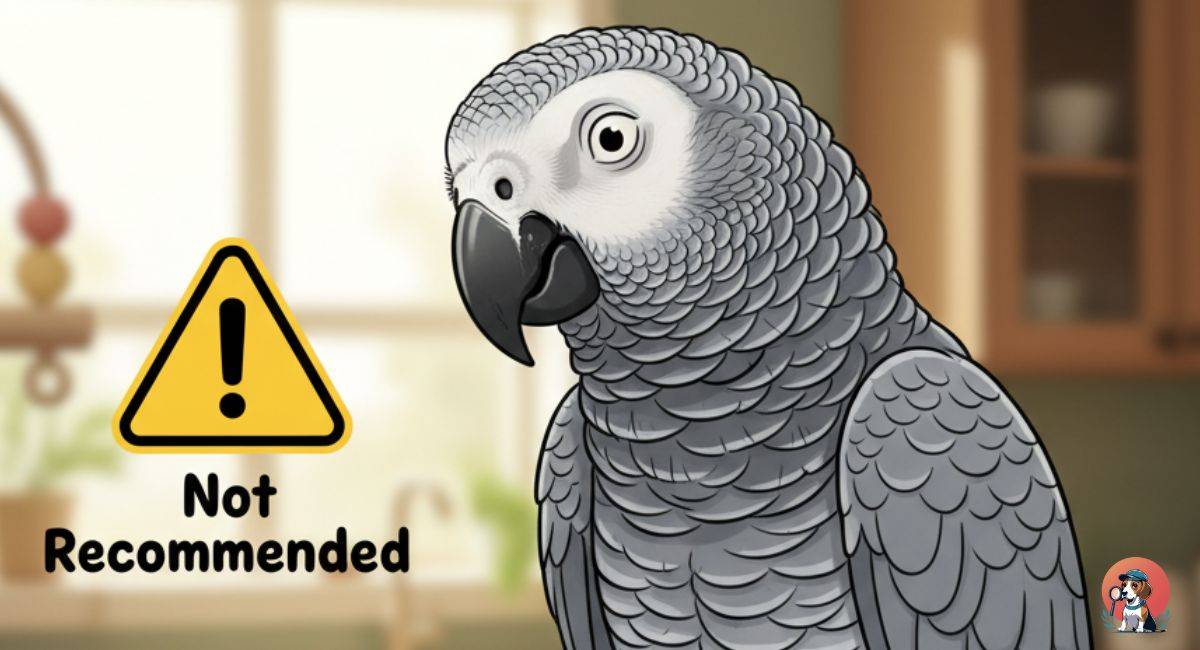
- Peanuts: Moldy peanuts, peanut products, or corn-based cereal and grains that are contaminated with fungus can produce dangerous toxins, making even small amounts risky, so it’s crucial to check everything before offering it to prevent accidental poisoning.
- Certain plants, such as green tomatoes, potatoes, peppers, and eggplants from the nightshade family, as well as rhubarb leaves, contain oxalate crystals that can cause kidney problems. This makes these plants and their fruits toxic and unsafe to eat. Always double-check what you offer to ensure it’s truly safe.
- Grit: Parrots, parakeets, budgies, cockatiels, lovebirds, doves, and pigeons, I’ve seen that while many species naturally love seeds with hulls, overeat or consuming too much grit—even when added as a supplement—can potentially lead to intestinal blockage, so it’s important to crack or offer whole food they can digest comfortably to keep them feeling well and ensure they need only what’s safe.
- Dairy: Birds fed milk or other dairy products like cheeses and yogurts can develop diarrhea because they cannot properly digest lactose, making these foods technically toxic even in small amounts, so it’s best to treat them only occasionally with alternatives that show they contain little risk when found in the diet.
- Mushrooms: Mushrooms, especially toxic-food varieties like false morel or Gyromitra, which people sometimes consider safe after cooking to render or eliminate potential danger, should never be included in what we offer our bird pets, as even occasionally consuming them can be completely matter and lead to toxic effects or death.
The items in the list above are the real baddies, but the following are best avoided, too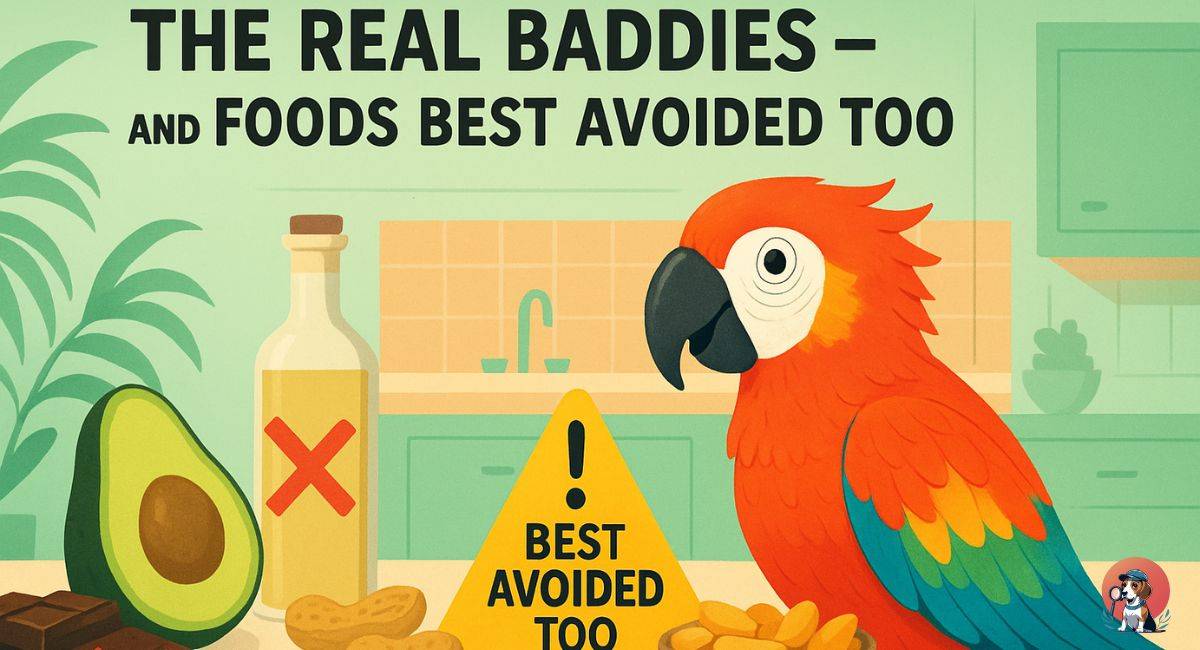
- Apple, pear, apricot, and peach seeds or stones contain arsenic and should never be given to parrots.
- The green parts of eggplant are toxic and should never be fed to parrots.
- All raw beans are mildly toxic to parrots, and it’s best to avoid them.
- Low-salt, organic, wholemeal bread can be offered occasionally, but should not replace a balanced parrot diet.
- Cereals like cornflakes produced for humans are over-packed with sugar, lacking essential vitamins and minerals, and should not be fed to parrots.
- Cheese and other dairy products may upset a parrot’s stomach and should be given with caution.
- Citrus fruits like oranges are generally toxic to parrots, with very few exceptions.
- Crackers, biscuits, and snacks produced for humans often contain salt and sugar, posing hazards to animals like parrots.
- Dates are too sugary, and these should be avoided for parrots.
- Fish and seafood are known to be difficult for some parrot species to digest, so these should not be fed easily.
- Garlic is toxic to parrots and should never be included in their diet.
- Honey should be avoided for parrots as it can harbor bacteria harmful to their health.
- Raw meat or poultry is unsafe for many parrot species, while cooked meat is generally fine in moderation.
- Milk and milk products contain lactose, which budgies and other parrots cannot digest, so some seed mixes with dried protein can replicate the nutrients they need without causing hard digestion issues, making it something safe to find and offer.
- Mushrooms and other wild fungi can be highly toxic to parrots and should always be avoided.
- Nutmeg is toxic to parrots and should never be given.
- Onion is toxic to parrots and should never be given.
- Passion fruit is toxic to parrots and should never be given.
- Shelled peanuts and other raw nuts are generally fine for parrots, but should be offered cautiously, unlike those fed to monkey species.
- Raw potatoes are toxic to parrots and should never be fed.
- Rhubarb leaves are toxic to parrots and should never be offered.
- Red tomatoes are generally fine for parrots, but green parts are toxic and must be avoided.
The Hidden Danger of Coffee and Tea for Your Parrot
I quickly realized that ensuring their health and safety involves more than just fresh water and a cheerful cage; you also need to consider what they eat because some Toxic Foods For Parrots are constantly lurking in everyday life. Things we might casually sip, like tea or coffee in a cup, might seem harmless to us, but can pose serious risks to our feathered friends, especially if left until late in the day when the chances of overconsumption increase. Over time, I’ve seen that vigilance is key—knowing which items pose a danger to your parrot can make the difference between a vibrant, playful companion and one struggling with avoidable health issues.
From my experience raising a Toxic Foods For Parrots, it’s astonishing how common beverages like tea and coffee can silently harbor toxicity that affects birds in ways many humans wouldn’t imagine; the chemical ingredient caffeine can trigger side effects ranging from a racing heartbeat and hyperactivity to elevated blood pressure, and even in a small dose, it can contribute to illness or severe outcomes including death. Watching a tiny animal cautiously nibble around my kitchen, I learned that even the tiniest sip from a mug or drink left unattended can be dangerous. The fact is that what seems safe for us can be lethal for our feathered friends, especially when large amounts accumulate unnoticed over time.
Toxic Foods For Parrots, it quickly became clear that even a small drink containing caffeine can trigger toxicity that directly affect vital organs like the liver and kidneys, and the fact is that the size of your bird can immensely determine how too much of this chemical impacts them, potentially causing a racing heartbeat, seizures, hyperthermia, and in severe cases, liver failure or kidney failure. What do parrots eat? Even a slight overdose can be fatal, and understanding how direct the effects are makes it obvious that what seems harmless for humans is dangerous for parrots, so vigilance is key to protecting these delicate creatures.
I learned that giving them unrestricted access to caffeinated beverages is a recipe for problems, Toxic Foods For Parrots, because even a loose sip from an open container can affect a bird in ways that worry any responsible owner. The idea is simple: avoid getting these drinks anywhere near your parrot, remove them from tables and counters, and never allow them to explore much on their own, as the best way to prevent harm is to control access to protect their delicate system.
Peanuts Are Not a Safe Food for Your Parrot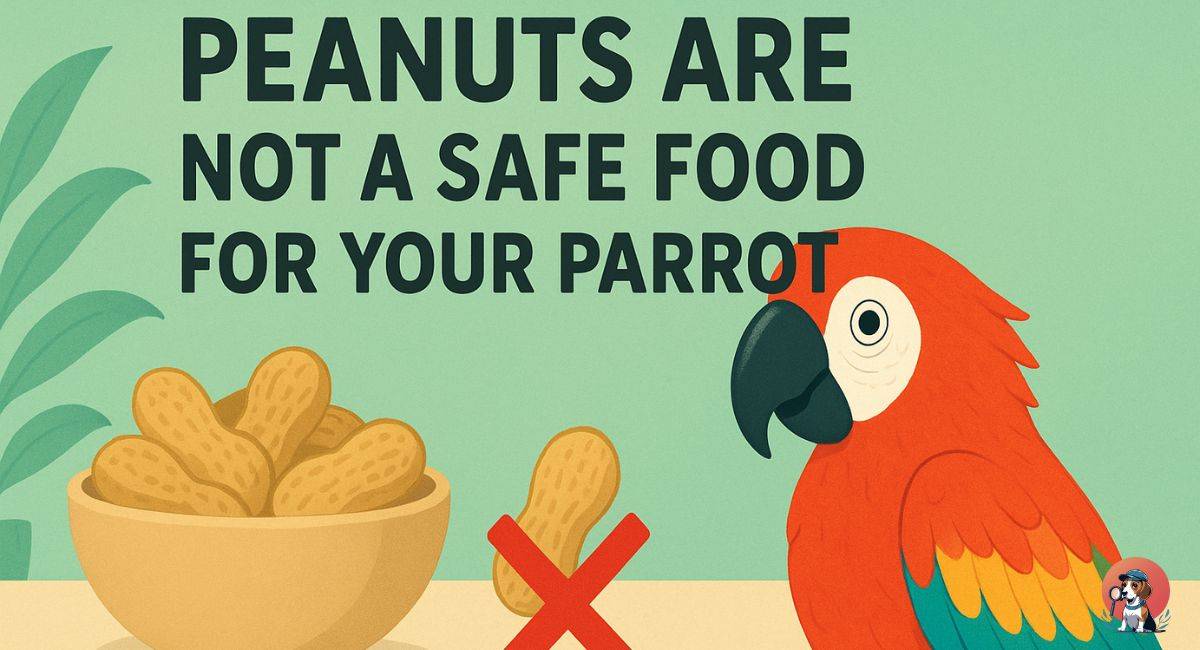
Toxic Foods For Parrots, peanuts and other nuts, many human foods that seem harmless can actually pose serious risks to a parrot because Aspergillus fungi can produce aflatoxins, and even minimal consumption can affect their health. From my experience, eating these nuts occasionally may seem safe, but the effect of contaminated peanuts is bad, and any owner who’s ever been worried about their bird knows that vigilance is key to preventing long-term harm.
One of the most important warnings I learned early on involves Aspergillus, a type of fungi, specifically Aspergillus flavus, which some birds can accidentally ingest when eating contaminated food. This common culprit can make a parrot sick, leading to Aspergillosis, a dangerous respiratory disease, Toxic Foods For Parrots, and, in my experience, even a mild version can be serious if unnoticed, reminding every owner that vigilance is key to keeping feathered friends healthy.
Toxic Foods For Parrots, with caring for a bird, recognizing signs of Aspergillosis early can make all the difference, because this common illness can turn fatal if untreated. I noticed that breathing problems, loss of appetite, and frequent drinking were accompanied by blue mucous membranes, especially around the trachea and air sacs, indicating that the amount of fungus the bird ingested had reached a level capable of attacking rapidly and leading to death in a surprisingly short time. The way this illness grows and progresses quickly is a stark reminder to monitor even small changes in behavior.
In my time raising Toxic Foods For Parrots, I quickly learned that peanuts can hide a dangerous fungus, often Aspergillus, which shows up as black spotting on the shell, and cracking or shelling these nuts before offering them is not enough to guarantee safety. Even a bird fond of peanuts may unknowingly ingest a contaminated one, so it’s important to avoid giving them and instead include safer options in their diet. Always look for visible signs that a peanut contains the fungus, and if in doubt, bypass it entirely, because ensuring what is safe is far better than risking a serious issue.
Alcohol is Toxic for Parrots
Toxic Foods For Parrots, I’ve seen firsthand how alcoholic drinks or cocktails can quickly lead to alcohol poisoning if offering them goes unchecked, and even small sips depress vital organ systems, sometimes reaching fatal levels. In instances where a bird is left free-roaming or unattended in the home, the risks skyrocket, making it crucial for responsible owners to focus on securing their cage and avoiding any opportunity for ingestion. Ensuring safe practices when serving around a parrot is part of truly protecting their delicate physiology and preventing harm before it’s attained.
Foods That Are Toxic to Birds
Toxic Foods For Parrots. Birds are wonderful companions and part of the family, and their intelligence and ability to share food with parents, friends, or a pet can make them great friends, but they often become fussy because their long lifespan and the household habits are such that careful choices in food with the family are essential.
Toxic Foods For Parrots. It’s important to understand that human foods can offer some benefits, but feeding pets, especially pet birds, requires extreme caution because many human foods are toxic to birds and can cause illness if the pet bird is fed without considering how their body processes food differently than humans.
Toxic Foods for Birds
Different pet species of birds have unique caloric and nutritional needs, so feeding the wrong type of food can lead to an inappropriate diet, which research shows may cause severe conditions or even death in pet birds. Toxic Foods For Parrots, making it essential to understand and meet each bird’s specific needs.
Seed-Based Diet
When you feed birds a seed-based diet, it can typically result in malnutrition or obesity, so select nutritious parts of their favorite items while avoiding foods that are commonly unhealthy to maintain balanced health.
Human-Food-Only Diet
Human food should rarely be given because a pet bird’s diet should ideally consist of formulated pellets like extruded pellets, Zupreem bird foods, or Harrison’s bird foods, which meet the specific dietary requirements for vitamin and mineral intake, providing balanced diets that cover necessary nutrients, and 80% of a pet bird’s best diet should come from these carefully designed foods, as advised by a veterinarian.
Toxic Foods For Parrots, When feeding a pet bird, pellets should form the core of their diet, while human food, treats, and snacks from the human family can be used sparingly to train or bond with birds, but many foods are toxic and can cause long-term illness, costly illness, or even death, so a veterinarian should determine appropriate portions based on weight, species, and overall health, ensuring the best foods are provided.
What To Do If Your Bird Eats Something They Shouldn’t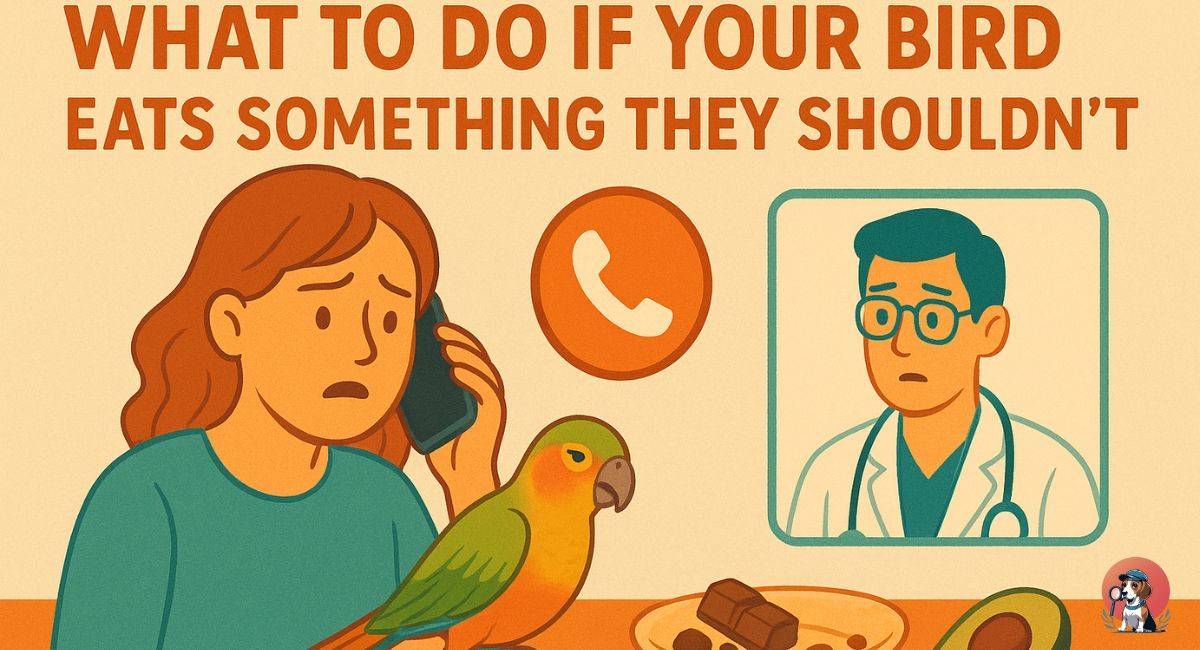
If a pet bird has ingested something toxic, it may vomit, and trauma or toxicity can result, so immediately call a veterinarian or emergency veterinarian rather than trying to induce vomiting at home, and always check the bird’s mouth, cheek, and tongue to ensure food is removed safely for the bird.
Not all Toxic Foods For Parrots are a death sentence for birds, as the amount they eat and whether it’s in small quantities typically make a difference, and with faster treatment, a pet can recover better, though eating even a little does not necessarily mean serious harm.
Toxic Foods For Parrots. A veterinarian and their staff can help determine the risk when a pet bird consumes a toxin, considering living conditions, typical diet, lifestyle, and any underlying health concerns. So it’s helpful to know the amount ingested, have specific information like packaging, and ask questions to get the best guidance.
Toxic Foods For Parrots, Veterinary care for toxicity in species of birds often involves supportive care like fluid support, heat support, oxygen support, heart support, and nutritional support, while veterinary staff may administer activated charcoal via a feeding tube to absorb toxins from the ingested toxin and prevent them from entering the bloodstream, depending on severity.
Toxic Foods For Parrots. Birds are sensitive creatures, so pet parents must exercise caution when feeding from various food sources. Changes in a bird’s routine or typical diet that make a pet bird lethargic, stop eating, or show difficulty breathing should prompt veterinary attention, and owners are encouraged to keep outside foods limited.
FAQS
Q:1 Toxic Foods For Parrots: What foods are toxic to parrots?
Certain foods like alcohol, chocolate, caffeine, avocado, and xylitol are extremely toxic to parrots and can cause severe health issues or even death, making it essential for parrot owners to recognize these dangers and prevent exposure at all times.
Q:2 Toxic Foods For Parrots: Can I feed my parrot fruits with pits?
When offering fruits to your parrot, always avoid pits from apples, cherries, and peaches because they contain cyanide, making them highly toxic, and feeding them to parrots is never the best choice.
Q:3 Toxic Foods For Parrots: Are nightshade vegetables safe for parrots?
Parrots should never be fed the green parts, stems, or leaves of tomatoes and peppers because these nightshade vegetables contain solanine, a highly toxic compound, so always remove them and make sure your bird’s food is safe.
Q:4 Toxic Foods For Parrots: Are peanuts safe for parrots?
Peanuts can be offered to parrots as a treat in moderation, but always use human-grade nuts that are properly stored to prevent aflatoxin contamination, which is harmful to birds, and ensure they are safely given.
Q:5 Toxic Foods For Parrots: What should I do if my parrot accidentally ingests a toxic food?
If your parrot has ingested a toxic food, suspect danger and immediately contact an avian veterinarian for advice and treatment to prevent serious health consequences.
Q:6 Toxic Foods For Parrots: What human food is toxic to birds?
Certain fruits like apples, pears, cherries, peaches, apricots, nectarines, and plums contain seeds or pits that are cardiotoxic due to cyanide, so even small amounts can be dangerous, especially if sprayed with pesticides, and fruit peels should also be handled carefully.
Q:7 Toxic Foods For Parrots: What fruit is poisonous to birds?
Many birds should never eat avocado because persin in its plants is toxic, and similarly, seeds or pits from apples, pears, cherries, peaches, plums, and apricots contain cyanide, while the onion and garlic parts of these fruits and plants can also be harmful.
Q:8 Toxic Foods For Parrots: Is milk toxic to parrots?
Many birds, including your pet bird or parrot, cannot properly digest milk, cheese, or yogurt because lactose in dairy products can upset their diet, and feeding them too much may cause diarrhea, so things like these should be offered cautiously, if at all.
Q:9 Toxic Foods For Parrots: Is sugar toxic to parrots?
While salt and sugar are not toxic in small amounts, feeding birds or your parrot large quantities of these substances can be harmful and dangerous, so they should be avoided as part of a diet, and more moderation is definitely recommended.
Q:10 Toxic Foods For Parrots: What is the most toxic thing to birds?
Bird patients in veterinary practice, exposure to toxins like heavy metals such as lead, zinc, copper, as well as avocado, caffeine, chocolate, onions, garlic, salt, fat, fruit pits, apple seeds, and xylitol ranks among the top 10 most dangerous items we treat in parrots.
Q:11 Toxic Foods For Parrots: What can parrots not drink?
Caring for beloved parrots, it’s critical to ensure pets never have access to poisonous items like alcohol, fizzy drinks, caffeinated drinks, coffee, or other harmful substances, because even small exposure can endanger their health and well-being.
Conclusion
Toxic Foods For Parrots: Providing a safe and healthy diet for your feathered friend is crucial because toxic parrot foods pose dangers that can lead to accidental poisoning, so avoiding foods on the listed foods helps reduce risk and supports a parrot’s long and healthy life while significantly improving overall well-being.
Toxic Foods For Parrots, Rhubarb contains oxalic acid, which can be irritating and interfere with calcium absorption, so cabbage and dairy should be avoided by birds; it’s important to research and consult an avian veterinarian before offering anything outside a well-rounded diet to ensure a parrot enjoys a safe diet it can digest properly.
Toxic Foods For Parrots, Food toxicity in birds has been studied through extensive studies to help parrot owners learn the basics of what to feed and what to avoid, and while researchers have proven safe foods, there’s plenty of safe foods available, so with the right knowledge, owners can plan for the future without worry about accidental exposure, especially when careful conducted feeding habits are maintained.
